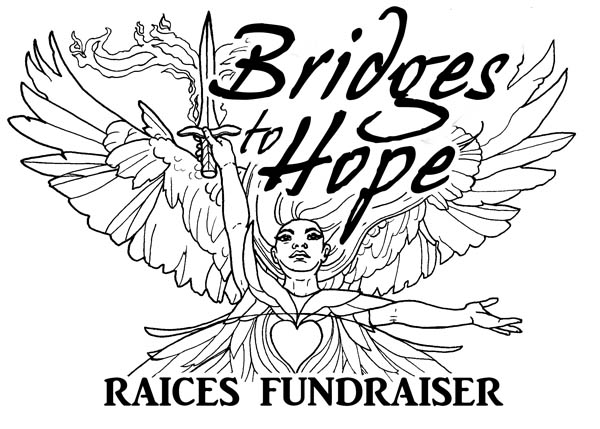Black Lives Matter.
This simple statement shouldn’t be controversial, but the events of the past weeks have made it painfully clear to me that a disturbing number of people, people in law enforcement positions, the legal profession, and around the country simply do not believe in that statement.
In just one of many irregularities in the Grand Jury hearing to decide whether to indict Darren Wilson for the killing of Michael Brown, the prosecutor *failed to ask for an indictment.* IANAL, but my lawyer friends tell me this is kind of a big deal. Also, Darren Wilson was allowed to testify, and for hours, without being cross-examined, which is also highly irregular for a grand jury hearing.
One of the best decisions I’ve made in the last few months was to take a suggestion (I believe from Daniel Jose Older) to follow reporter Shaun King, who writes for the Daily Kos.
King has written the following reports (among many others) about three of the most recent police killings of black people in the USA.
On the killing of Eric Garner.
On the killing of Tamir Rice.
On the killing of Michael Brown.
If you think these killings are isolated incidents, Reddit user biopterin has created an extensive list of other killing incidents by officers. If you doubt that there is a pattern of police violence against unarmed people, I’d invite you to investigate this.
Or maybe watch this Daily Show segment:
The Civil Rights movement is not over. It was never over. But it is back with a strained, but powerful voice, with protests in 137 cities last week, and more coming.
Many of you are as incensed as I am, or more, probably more. I can only be outraged and ashamed on behalf of my country and the people who are supposed to protect its citizenry. I don’t know what it’s like to be black in America. I haven’t lived it, and even reading about the lived experiences of black people in the country, I don’t really know what it was like. But I see the pain on people’s faces, read what people write about what it is like, and I want to do something.
I need to do something.
Black Lives Matter.
Here are some sites of groups that are organizing protests and direct actions:
https://www.facebook.com/BlackLivesMatter
http://fergusonresponse.tumblr.com/
If the USA wants to prove that it believes that black lives matter, we need to stand up and do something. I’ve been RTing like it’s my job throughout this, and trying spend more time listening and using my platform megaphone to magnify the voices of black people rather than drowning them out with my own voice.
So what am I doing about it?
My main answer to these issues of systemic injustice is to work it into my writing. One more white body and white voice at a protest may not tip the scale as much as one more white writer writing diversely and supporting diverse works and creators.
The way I see it, there are two main approaches in terms of writing to support diversity.
1) Write the world as it is, to show people who do not know or who refuse to see. Show how life actually is for people in marginalized and threatened positions. This is harder to do from the outside. I can’t know what it’s like to be a black man living in America, but neither can I know what it’s like to be a wizard, and I’ve written plenty of wizards. These are not the same, but it’s important, I think, to remember that fiction writers, especially writes in the literature of the fantastic, that we are constantly writing outside our own experience. But getting it wrong when it comes to writing diversely can have pronounced, real-world effects, can hurt people, can propagate dangerous stereotypes.
2) Write the world you’d like to see. Write worlds where black lives do matter, where the systems work, where systemic racism has been ended, or is being overthrown, or slices within a world where things already are better, worlds untouched by these problems, to give breathing room, space for safe escape and adventure. A world that says “Don’t worry about that for a moment, let’s have some fun and take a break.”
I spend more time on strategy #2 than #1, but I hope to do better at both, do better all the time, as I become a better writer and a more whole and compasionate human being. I try t write diversely because representation isn’t just about the pleasure of seeing yourself in narrative. It’s about narrative acknowledging that you exist, that you are a valid person, that you deserve existence. That there is space for you in this world. When generations worth of abuse and violence looms over your head, it is my hope that having more stories where black lives matter can help change the conversation. That stories can fight stereotypes, can provide more models for readers of a world that does better, of black people as people, instead of the Big Black Buck or Thug stereotypes propagated by a white supremacist system.
We can also support diverse writers, promote diverse voices in publishing – not just writers but editors, designers, artists.
This is a good time to remind folks about We Need Diverse Books, which is working on supporting NYC publishing internships for people from diverse backgrounds.
All of this is connected. The killing of Michael Brown is connected to Daniel Handler’s racist comments overshadowing Jackie Woodson’s National Book Award Win. These are all manifestations of a racist, anti-black culture.
So this is me, lifting my voice in an attempt to follow suit with existing actions, to write in a way that moves the conversation and our cultures towards sympathy, empathy, and justice. And along the way, I’m trying to spread the news as written largely by people who this systemic injustice threatens most directly, using my privilege to help propagate their message, so that they may be heard by more people, that their voices build momentum, as do their actions.
Black Lives Matter.
UPDATE: In the 8ish hours since I posted this, I’ve learned of another shooting death of an unarmed black person by a police officer: The note about the officer’s immediate verbal response makes me thing that it was a mistake based on an in-the-moment judgement call by the officer, but Rumain Brisbon, the victim, is still dead, mistake or not.


